Your support helps us to tell the story
From reproductive rights to climate change to Big Tech, The Independent is on the ground when the story is developing. Whether it’s investigating the financials of Elon Musk’s pro-Trump PAC or producing our latest documentary, ‘The A Word’, which shines a light on the American women fighting for reproductive rights, we know how important it is to parse out the facts from the messaging.
At such a critical moment in US history, we need reporters on the ground. Your donation allows us to keep sending journalists to speak to both sides of the story.
The Independent is trusted by Americans across the entire political spectrum. And unlike many other quality news outlets, we choose not to lock Americans out of our reporting and analysis with paywalls. We believe quality journalism should be available to everyone, paid for by those who can afford it.
Your support makes all the difference.
More than 200 people have been killed in Spain as the army joined rescue efforts on Friday in the aftermath of the worst flash floods to hit the country in decades, leaving victims in the ravaged region begging for aid.
Dani Sorní, a 22-year-old resident of Paiporta, the epicentre of the disaster, described the grave conditions. “This town is a cemetery, with bodies trapped under a metre-and-a-half of mud and under cars,” he told The Independent.
With the final death toll feared to be 400, survivors described a “tsunami” of water trapping victims in their cars and their fury over poor planning and slow response by authorities.
Three days have passed since torrential waters swept through the Paiporta community, leaving behind a scene of unimaginable destruction with streets buried under thick sludge and crushed vehicles piled high.
Located just six miles from Valencia’s centre, this town has been transformed from a peaceful community into what feels like a war zone overnight. The floods, triggered by an intense weather system known as Dana, have shocked the community that is home to around 25,000 people.
Dani, a factory worker, said: “We have been abandoned. We are still waiting for aid to come. There’s no army, it’s just us.”
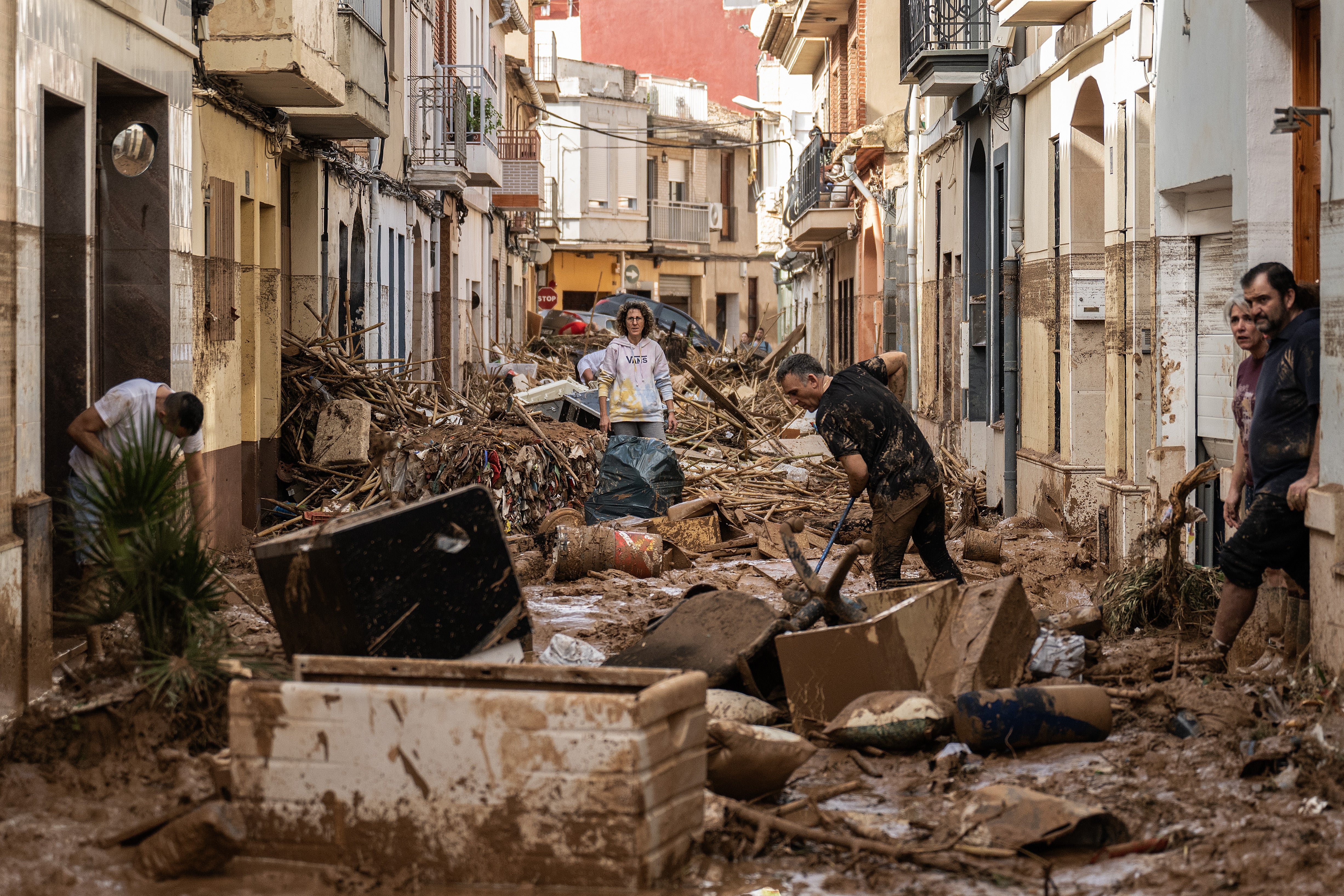
Many homes remain without running water, electricity, gas, or internet, forcing thousands into the streets in search of essential supplies.
“This is a war zone. We don’t have water even to shower. And all the supermarkets have been looted,” Dani said. “You can barely walk through the streets, and everyone knows of someone who has died.”
As people continue to try and recover the last remnants of their lives in the town, frustration and despair have enveloped residents, who have accused the government of delaying aid supplies.
“We don’t know anything about when help will arrive. We feel abandoned and neglected,” Dani said.
The emotional toll of the situation weighs heavily on him. “It’s hard to sleep knowing that there are still dead people trapped out there,” he said.
Among the dead in Paiporta were six residents of a care home on the outskirts of town. As floodwaters surged, they were trapped in their rooms when the lower floors were inundated.
Distressing images from that moment went viral, showing communal areas flooded, with many residents partially submerged.
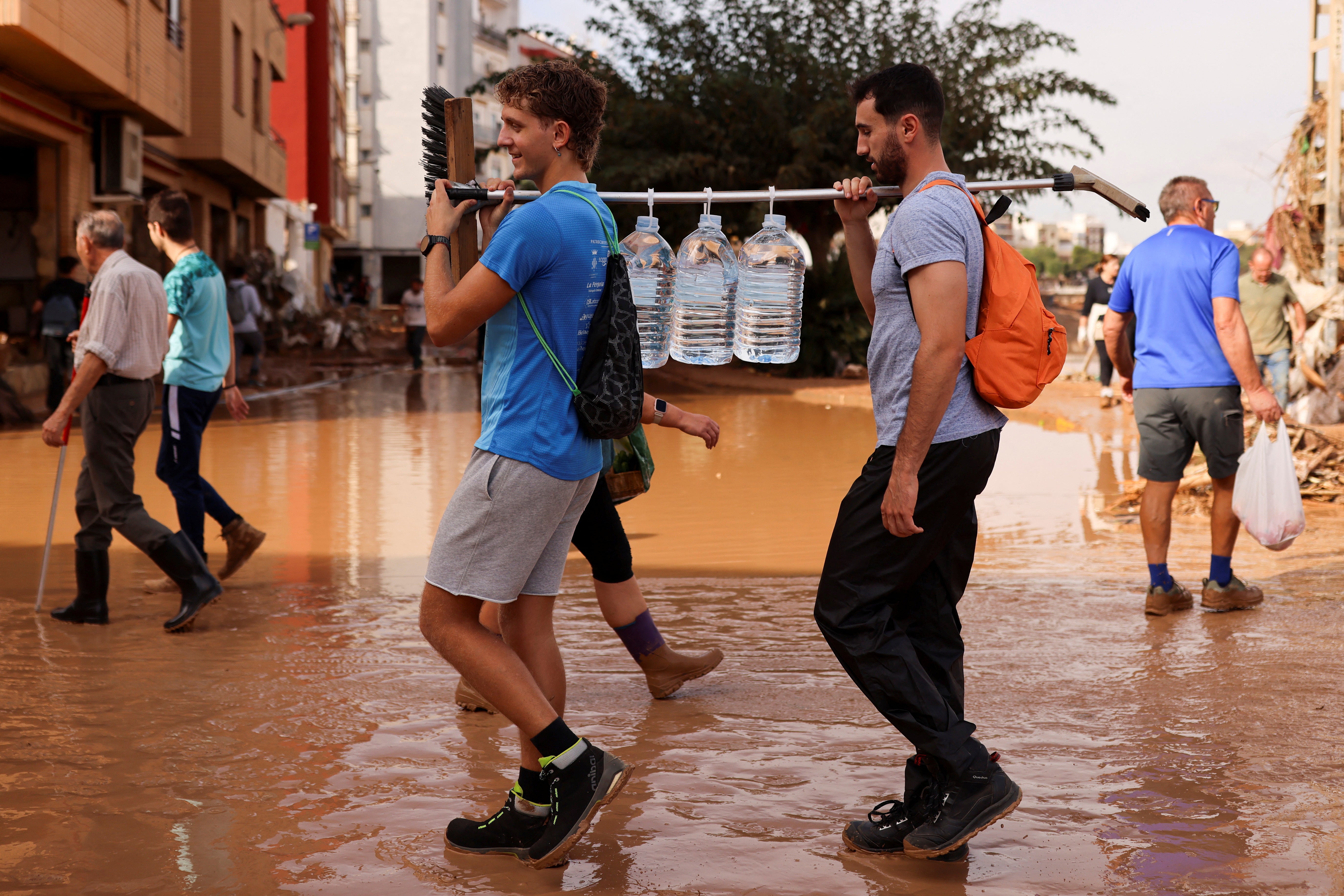
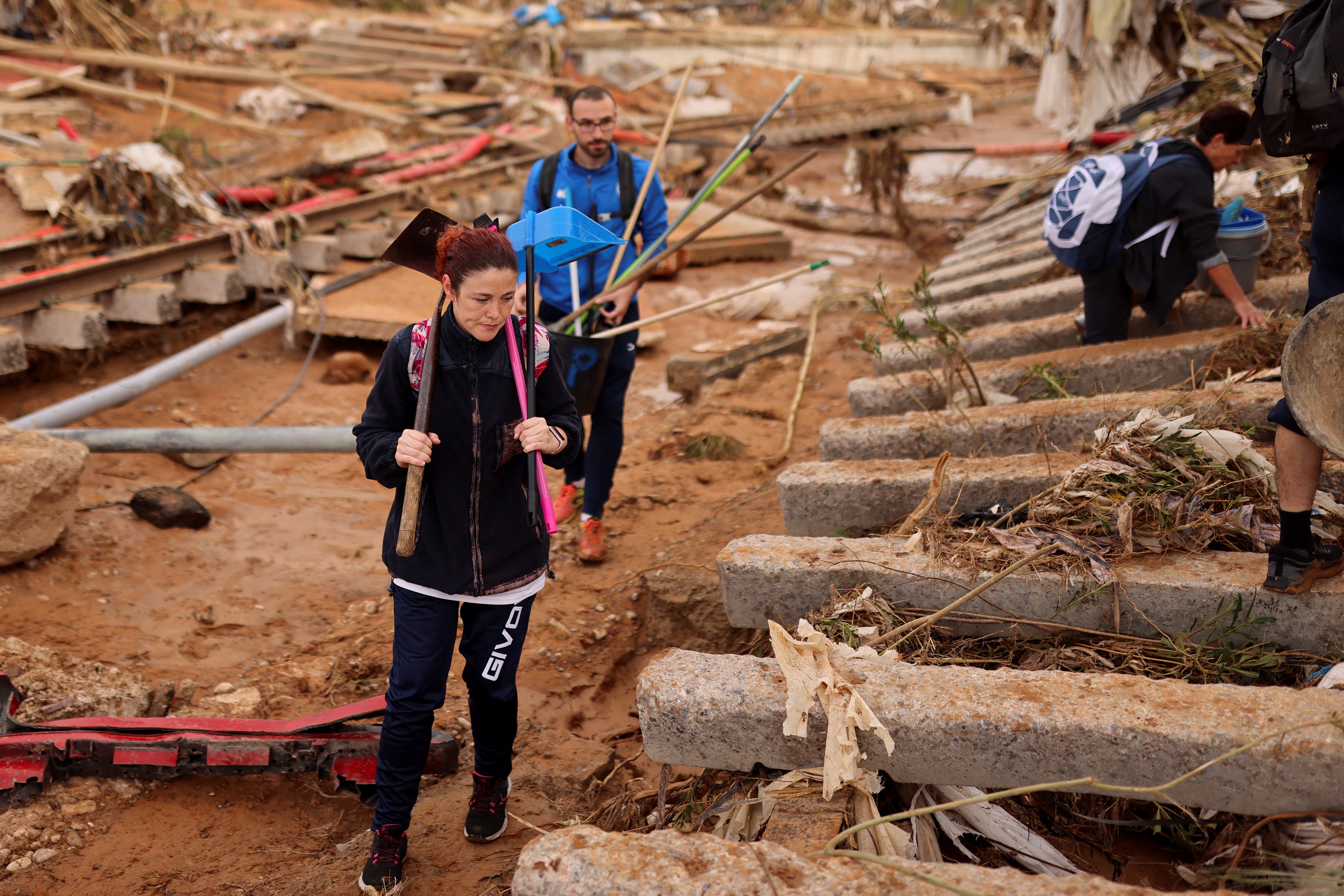
Dani said: “We’ve found the body of a woman hugging her three-month-old dead baby. Neighbours had to remove the body themselves because we haven’t received help yet.”
He explained that many residents were caught off guard, scrambling to save themselves and their belongings, while others rushed to save their cars.
Dozens are believed to be trapped under car garages. “We’ve seen people sitting outside their homes waiting for forensic teams to come and take the body of their relative,” he said.
“Everything that is ground level has been erased. It’s turned upside down,” he said. “All the schools, all the houses have been destroyed. Nothing remains standing.”
The lack of clean water is particularly troubling, as it poses significant health risks after the flooding.
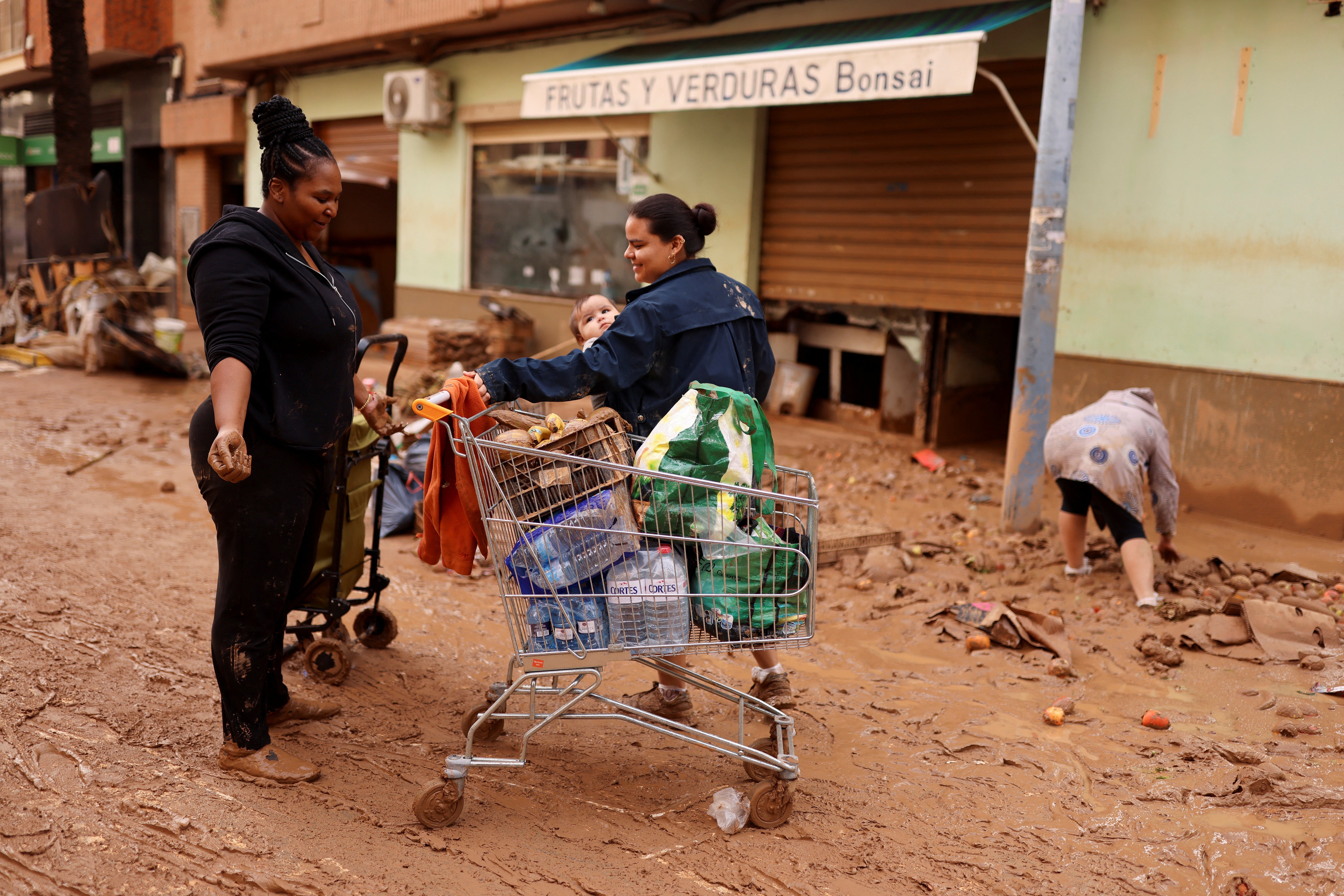
Dani added: “We’re all day covered in mud and dirt, and we have been drinking water even if it’s not potable. We’re collecting water that’s left in the garages to flush the toilet.
“We don’t know how long it will take for the government to bring us water supplies. We don’t know anything.”
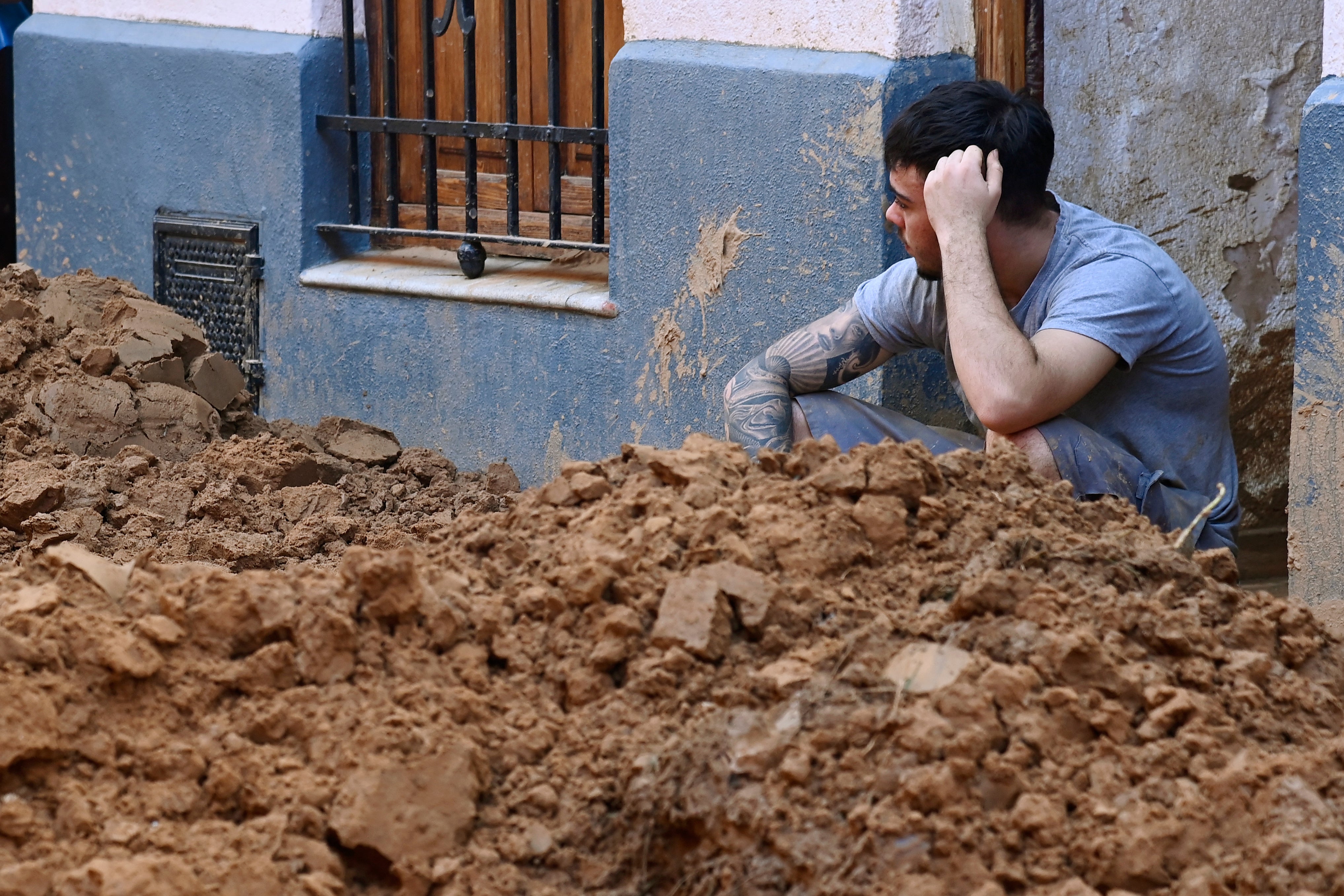
As rescue teams work tirelessly to recover the dead and assist the living in other towns, Dani warned that the “worst disaster is yet to come”.
“When the services come and start moving cars, the number of deceased will increase. Nothing has been moved yet,” he said. “Everything is destroyed. We are destroyed.”
Meanwhile, a new red alert was issued in the southern province of Huelva on Friday, where residents have been told to stay at home ahead of intense rainfall.

